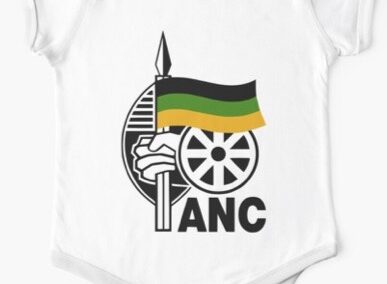I recently spent a weekend away with some university friends. We were all together in one of the residences of the erstwhile Rand Afrikaans University (RAU), now part of the University of Johannesburg, in the late 1990s and early 2000s.
Everyone has now scattered across the country (surprisingly we all still live in South Africa, perhaps uncommon for a group of friends from my generation to all still be in this country) but once a year we try get together in a central location to have a reunion and reminisce. Last year was missed because of Covid-19 and the lockdown, but this year we managed to carry on with the tradition.
It’s always good to see old friends that you haven’t seen for some time, but as with those you only see occasionally (once a year in this case), you notice how age is beginning to catch up with us. Everybody is carrying a few extra kilograms, some have a bit less hair, some have a bit more grey (certainly in my case).
And as is the way of things for people who have reached our age, talk turns to pensions and retirement annuities and investments (which also makes me realise how poor I am in comparison to my peers…). Kids are also spoken about with a number of us now having become parents, with all that entails, from school fees to the broader worries any parent has in the world today.
But this brings me to my point: although none of us has fundamentally changed from those days in the RAU res, still liking a drink, watching and talking about rugby and cricket, and seeking to put the world to rights, each has become more responsible. As a group we have become contributing members of society, pay taxes, save diligently, pay mortgages, raise children, a far cry from our days in the Dromedaris res where the primary aim was to somehow pass exams between drinking sessions.
Which brings me to my question. Will the African National Congress (ANC) ever grow up and also start becoming responsible with taxpayers’ money and the economy which it ostensibly manages?
To be fair to the party, when it first came to power in the 1990s it was fairly responsible with the money it managed. It paid down debt and in the first decade of this century the government ran a budget surplus twice, an extraordinary achievement for a country like South Africa.
At the same time, the economy was growing fairly rapidly, partly as a result of the policies implemented by the Mbeki government, partly because of the commodities boom, and partly because South Africa was still benefiting from much residual goodwill from the international community.
However, things have now changed drastically.
Where once the government was fairly conservative with taxpayers’ money and implemented policies that were at least fairly investment friendly, the picture today is quite different.
The ANC-led government spends the money of taxpayers with no thought as to whether it is being used effectively – and this is not to talk about the money that is simply lost as a result of theft.
In addition, the government seems, at best, ambivalent and, at worst, openly hostile to those who actually create jobs and economic growth in the country. Growth-destroying policies such as BEE, expropriation without compensation, and excessive regulation work to continue to throttle the economy.
Coupled to this are the country’s municipalities and education system which are fraying and on the brink of collapse.
This is before we turn our attention to the scores of failed and failing state-owned enterprises, such as Eskom and SAA.
This has led to lower and lower levels of investment in the economy, also coupled with an exodus of skills and capital, making those South Africans who remain behind even poorer.
If we could somehow wave a magic wand and create an avatar of the ANC government, represented as a human being, what would we think?
If this avatar had been in the RAU res with myself and my friends in the late 1990s and early 2000s we would have lived with a responsible person, dedicated to not spending more than they earned, and slowly learning the ropes of how to function in a complex world. They would probably be a socialist (as many young people are) but would know that pragmatically some sort of free market is desirable.
Fast forward to 2021 and perhaps our ANC avatar has attended the reunion weekend with myself and my friends. What would we see now?
Instead we would see someone that regularly spends more money than they earn and constantly borrows money with no idea or plan as to how to control their spending. They will likely be a feckless parent, with no concern given to setting up their children to be successful in life through presenting them with a decent education. They are also likely to be detached from reality and believe in failed 20th century ideas to rescue South Africa from its current predicament.
If this ANC avatar was a friend of ours we would grab him by the shoulders, shake him, and look into his eyes and ask: ‘When the hell are you going to grow up?’
Unfortunately, on the available evidence the answer is ‘Not anytime soon.’

